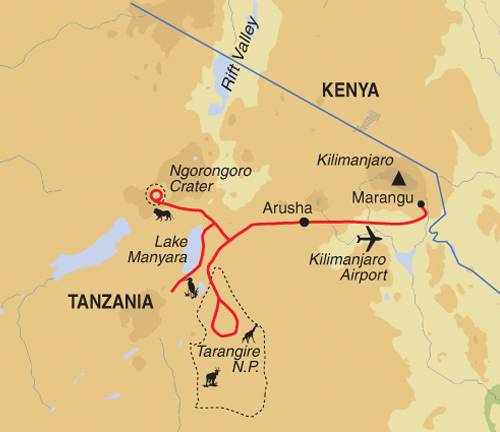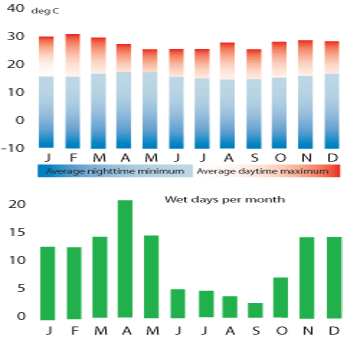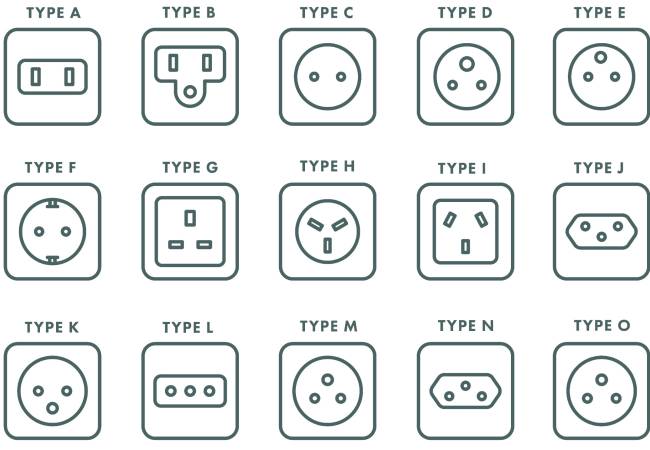Current as of: March 28, 2025 - 13:56

Safari Extension after Rongai Route Trip Notes
- Destination: Tanzania
- Programmes: Trip Extensions
-
Activity Level:
1 out of 7 - Easy
- Ages: 16+
- Trip Code: XYW
Trip Overview
A fantastic introduction to Africa’s wildlife and the perfect antidote after your climb
A perfect introduction to Africa’s wildlife. The Ngorongoro Conservation Area is as breathtaking for its landscapes as it is attractive for its animals. The walls of the crater provide a home for an abundance of animals acting like a giant enclosure. As a result only a few of the vast numbers of animals actually migrate out of the crater. Tarangire National Park has the biggest numbers of elephants in the northern part of Tanzania and is dotted with the eerie and irresistible Baobab trees, which are a favourite with the elephants and make for a beautiful landscape. Finally Lake Manyara National Park is small but supports a high density of mammals including its famous population of tree climbing lions.
The mandatory park fees contribute to conservation of the parks and surrounding areas.
At a Glance
- 3 days Land Only
- Travel by 4WD safari vehicle
- 2 nights permanent tented camps
- Price- from GBP 1099 (based on two people travelling together and sharing)
- Single supplement £75
Highlights
- Ngorongoro Crater-unbeatable scenery for wildlife spotting
- Tree climbing lions of Tarangire
- Perfect antidote after summiting Kilimanjaro
Is This Trip for You?
A chance for some excellent wildlife viewing and beautiful scenery. There are two long drives and some shorter ones most of which will be in parks and conservation areas, allowing for constant animal spotting. We travel in 4WD landcruisers or landrovers. Each vehichle has a roof hatch, which greatly enhances game viewing..
Group
The price for this extension is based on 2 people sharing. A price for solo travellers is available on request.
You will be accompanied by a knowledgeable safari guide/driver throughout.
Adult min age: 16
Min group size: 2
Itinerary

Land Only
- Start City: Marangu
- End City: Kilimanjaro Airport
Land Only Itinerary
You will be picked up from your lodge in Marangu at 7:30 am and transferred to Arusha to meet the safari vehicle. Breakfast is included as part of the Kilimanjaro trip. We will then drive to Tarangire National Park. This park is particularly famous for large herds of elephants and as we drive through it you should be able to view hundreds of them. Tarangire is a mix of large mature trees, grassland and the Tarangire River. You should also see herds of giraffe, zebra and buffalo, and there are regularly good sightings of both lions and leopards.
Migunga Tented Camp or similar
Today we drive from our permanent tented camp to Ngorongoro Conservation Area. Ngorongoro is a remarkable place. It is a conservation area, rather than a national park, which means the whole area is managed for both the animals and the local Masai people who graze their cattle alongside the indigenous wildlife. Whilst in Ngorongoro we have a chance to glimpse something of the Masai way of life. We will drive around the rim of the crater itself, and from here we can look down and see the herd of wildebeest or buffalos. Finally we descend into the crater. The crater walls provide a natural sanctuary for the animals, which means there is plenty to see: lions, elephants, buffalo, rhino and leopard (if you are lucky). The crater walls form a stunning backdrop and seeing herds and solitary animals roaming within it make for some of the best wildlife viewing in Africa. The only animal you won’t see in here is a giraffe, whose long legs are unable to cope with the steeps sides of the crater. After a full day in the crater we drive back to our permanent tented camp.
Migunga Tented Camp or similar
We drive to nearby Manyara National Park for a game drive in one of Tanzania’s smaller but fantastic parks, where the safari experience will be both diverse and rewarding. The lakeshore at Manyara teems with birdlife, and while you are looking for the birds, with luck you might spot one of the elusive tree-climbing lions. There is a surprising number of other large mammals and the striking cliffs of the Rift escarpment form a dramatic backdrop. We will then drive to Kilimanjaro international airport. The drive back is approximately 4-5 hours and to allow sufficient time you should have a flight booked no earlier than 4pm on this day.
Accommodation
Migunga Tented Camp
Migunga Tented Camp is set in 35 acres of acacia forest and consists of permanent tents on raised platforms. All have en-suite bathrooms and a private veranda looking out onto the lush forest. All the tents are discretely placed around a central glade, offering shade and privacy, but still only a short walk to the restaurant and bar.
Wake up each morning to the sound of the forest whilst of an afternoon enjoy watching vervet monkeys play. Of an evening the whole camp resonates with jungle sounds.
Food & Drink
All breakfasts, 3 lunches and 2 dinners are included.
In the itinerary we state which meals are included on each day. There will be a selection of both Swahili and European dishes of an evening. Packed lunches are provided by the lodge. Vegetarians can be catered for but, as is often the case when travelling in countries like Tanzania, choices will be limited. Please notify the Exodus office of any dietary requirements, prior to departure.
Transport
We travel in 4WD land cruisers or landrovers. There is a roof hatch, which greatly enhances game viewing, in both vehicle sizes and everyone will have a window seat. As floor space is limited we recommend only bringing a small daypack with photographic equipment inside the vehicle. The back of the vehicle has ample space for your main luggage
Weather & Seasonality
Tanzania lies just south of the equator and therefore is hot most of the year, there are two wet seasons, the long rains in April and may and the short rains in November. This tour runs only in the dry season so you should not expect much rain. The days will be warm usually between 15 and 25 C.
Weather Charts

What To Take
Essential Equipment
In addition to your ‘normal’ daily clothes, you will need the following essential items:
Please use a soft sided holdall for your luggage as this is easier for loading on the safari vehicle
torch
sunhat
sun cream
sunglasses
hat
daypack
camera with plenty of memory and batteries
fleece for early mornings
Light wet weather top.
We recommed you wear light coloured clothes whilst on safari as bright colours can disturb the wildlife
Practical Information
Visa
Tanzania
Travellers from the UK, US and EU normally need a visa to enter Tanzania. Please note, visa requirements often change and it is your responsibility to obtain any required visas for this trip. Therefore, we recommend that you check with the nearest embassy or consulate of your chosen destination(s), including any countries you may be transiting or transferring through.
Some local governments provide guidance on what visas their citizens need. To help, we’ve gathered a selection of useful links below.
- Australia: www.smartraveller.gov.au/destinations/africa/tanzania
- Canada: www.travel.gc.ca/destinations/tanzania
- United Kingdom: www.gov.uk/foreign-travel-advice/tanzania/entry-requirements
- USA: www.travel.state.gov/content/travel/en/international-travel/International-Travel-Country-Information-Pages/Tanzania.html
Please note, it is possible to get the visa online (from US$50), but this can take between 10 days and three weeks. For more information and to apply for the visa, please visit www.visa.immigration.go.tz. If you are flying into Kilimanjaro Airport, we recommend arranging the visa in advance as the visa-on-arrival process has become more complicated and can now take longer.
Vaccinations and Health
Tanzania
There are no required vaccinations. However, you may want to consider vaccinations for hepatitis A, tetanus, typhoid, cholera, hepatitis B, meningococcal disease, rabies, tuberculosis and yellow fever. Protection against malaria is essential. Please seek advice from your doctor or travel clinic on the best course of action for all the above. Additionally, dengue fever, a tropical viral disease spread by daytime biting mosquitoes, is a known risk. There is currently no vaccine or prophylaxis available, so we recommend you take the usual precautions to avoid mosquito bites.
You may also be required to show a yellow fever vaccination certificate (or an exemption certificate) if you’re coming from (or transiting for more than 12 hours through) a country with risk of yellow fever transmission. If you’re visiting Zanzibar from mainland Tanzania, border officials have been known to demand proof of yellow fever vaccination or an exemption certificate.
The risk of malaria on this trip is slight, but you may wish to consult your GP or travel health clinic for further advice.
Dengue fever and/or chikungunya are known risks in places visited on this trip. Both are tropical viral diseases spread by daytime biting mosquitoes. There is currently no vaccine or prophylaxis available for either, and therefore the best form of prevention is to avoid being bitten. We recommend you take the usual precautions to avoid mosquito bites.
Local Time
Tanzania's time zone: Africa/Dar_es_Salaam (UTC +03:00)
Electricity
230V 50Hz. Power cuts are a frequent occurrence so you should be prepared for this at the lodges.

Money
Tanzania's currency: Tanzanian shilling (TZS). However, we recommend you take most of your money in US dollars issued from 2009 or after with the big head design. Please note, Tanzanian shillings may not be imported or exported. There is no restriction on the import of foreign currency provided it is declared on arrival. On leaving Tanzania, you may convert any amount of shillings into hard currency provided you have a currency exchange receipt.
ATM Availability
There are some ATMs in Marangu though it’s best not to rely on these as there are regular power cuts etc. Credit cards are accepted at the Marangu Tented Camp but note that there is often a service charge for their use.
We recommend that you take most of your money in US dollars issued from 2009 or newer with the big head design.
Extra Expenses & Spending Money
Whilst on safari there will be little to spend your money on. You should allow between US$5 and US$15 a day for incidentals, drinks and postcards. There may be opportunities for souvenir shopping in which case you should allow some money for this.
See also ‘Food’ and ‘Visa’ sections.
Drinks are at your own expense.
Sustainability and Impact
As a certified B Corp, we’re on a mission to improve our social and environmental impact across all our adventures.
We do this through our innovative Thriving Nature, Thriving People plan.
This ‘nature positive’ approach is designed to help nature and communities thrive in harmony though practical solutions, such as reducing carbon and waste on our trips, supporting conservation projects through the Exodus Adventure Travels Foundation, and rewilding 100 square metres for every Exodus traveller.
Important Information
Your safe participation
When booking this trip, you should be confident in your ability to participate in all activities described in these Trip Notes. If you have any doubt about your suitability, please call us and ask to speak to one of the experts on this itinerary.
Although our leaders are well trained to deal with different capabilities, if they have any concerns about someone’s ability to safely take part in an activity, or their impact on other people’s enjoyment, we authorise them to take necessary action which, in some circumstances, may involve asking someone to miss that activity.
By booking this trip you agree to our Booking Conditions which clearly state that our leaders have the authority to do this. In these rare instances we will ensure anyone sitting out is safely provided for and offered alternative options where possible. Refunds will not be provided for activities missed and customers may be liable for additional costs incurred.
Seatbelts
All vehicles used by us should be equipped with working seatbelts, except where approved by us based on the vehicle type or journey. Wherever seatbelts are available, we require our customers to use them for their own safety, even where it may not be a legal requirement.
How to Book
- Check availability: Go online to check availability, or contact us by phone or email.
- Secure your place: You can provisionally hold a place on this trip, usually for between three and seven days.
- Complete your booking and payment
When you’re ready to book, go to our website for online bookings, book over the phone or you can complete a booking form (available online or on request by calling us). We accept all major credit and debit cards, or you can pay be cheque.
After booking
You will receive your booking confirmation letter and invoice, which includes extra information and guidance about your travel arrangements.
Full joining instructions, including local emergency numbers and details of how to reach the start point, will be sent to you approximately two to three weeks prior to departure. If you do not receive these at least a week before departure, or require them earlier, please contact our office or your travel agent.
Trip Note validity
These Trip Notes are valid from the “Current as” date on page one. They will occasionally be updated after booking and before departure; if there are any updates that significantly impact the inclusions or itinerary, customers will be written to separately. They will also receive a link to the most up-to-date Trip Notes with their Final Joining Instructions before travelling.
The information in these Trip Notes is given in good faith. Where differences exist between the Trip Notes and our current brochure or website, the Trip Notes supersede the brochure and website. All holidays can be subject to unexpected changes; to enjoy them you should be prepared to be flexible where necessary. Occasionally, it may not be possible to follow the itinerary as planned. This may be for a variety of reasons – climatic, political, physical or other. In these circumstances we will make the best-possible alternative arrangements that maintain the integrity of the original itinerary.
Licensing
Exodus is fully licensed and bonded as a tour operator. We hold Air Traffic Organisers Licence (ATOL) number 2582, issued and bonded with the Civil Aviation Authority (CAA). We are also bonded to the International Air Transport Association (IATA) and we are members of the Federation of Tour Operators (FTO) and ABTA – The Travel Association. This means you can book your Exodus holiday with confidence, as all money paid to us for your trip is fully protected.